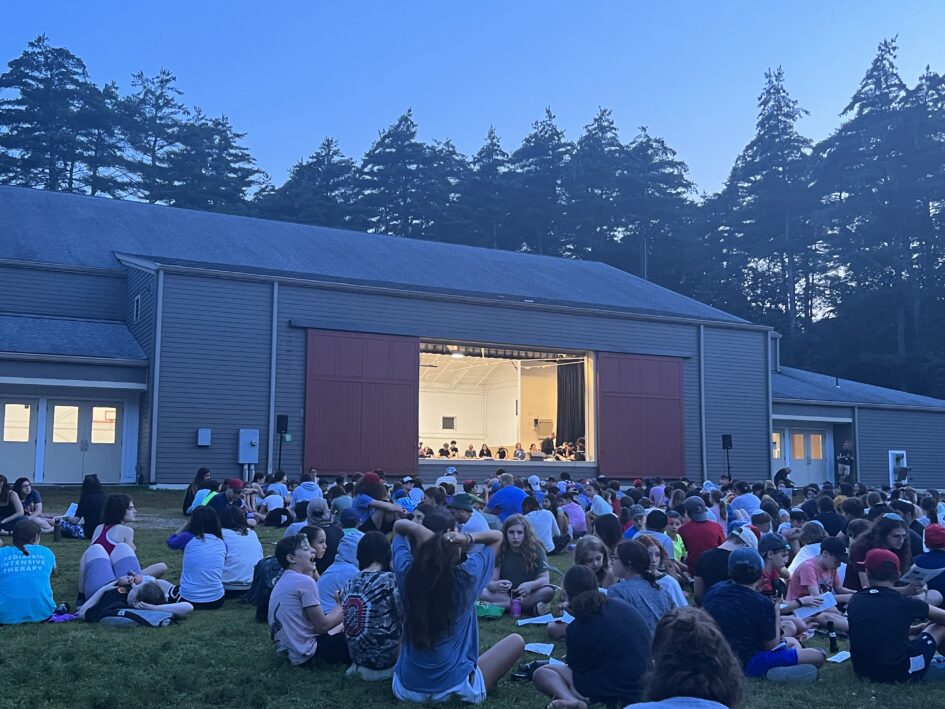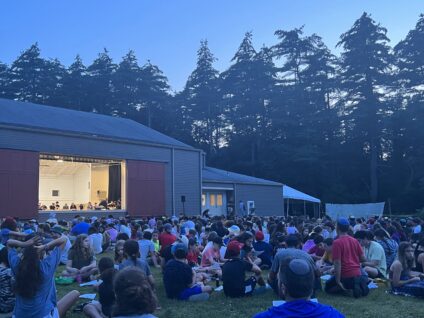Tisha B’av: Marking a Somber Moment as a Community

As the sun sets on erev Tisha B’Av, the camp atmosphere shifts to a somber mood. We gather on Machaneh Gimmel (our large field near the Bet Am Gadol), sitting on the field in the waning light. Maariv is said, not chanted, and the chanichim (campers) feel the difference, echoing the haunting words of Eicha, the Book of Lamentations that is read on Tisha B’Av:
Lonely sits the city
Once great with people!
She that was great among nations
Is become like a widow;
The princess among states
Is become a thrall.
For generations of campers, Tisha B’Av holds powerful significance. Eicha is chanted by dedicated chanichim, who study the mournful trope for weeks. The quiet that descended upon Machaneh Gimmel made it clear that the chanichim understood that this was a somber moment that stood apart from ordinary daily life at camp. Though grasping the Temple’s destruction is challenging, our generation has experienced profound loss and fear during the pandemic, making reflection amidst summer fun more accessible.
The transition from mournful to hopeful culminates with the fast’s end for those observing. Camp joy returns, etching this moment into another generation’s memories.
Here are some thoughts on Tisha B’Av at camp from some of the chanichim who chanted Eicha:
“I knew I should contribute to the community by reading Eicha. At camp, I can practice Tisha B’Av in the way I want to by participating in peulot (activities) that reflected what we learned about Tisha B’Av, such as the movie Race” (about athlete Jesse Owens). – Aviv W.
“I knew the trope for (Megillat) Esther, so it was easy to learn the trope for Eicha. It was amazing to read it in front of the whole camp. Tisha B’Av is more meaningful when I am at camp.” – Kira D.
“I thought it would be cool to learn to read Eicha after I learned to read Esther; they sound similar. It was a little scary, but cool to do.” – Noam B.
“It was a fun experience to learn something new and to read Eicha in front of the whole camp. Tisha B’Av at camp helps me connect closely to Judaism.” Yedidyah L.
“The Eicha tune is so beautiful; this is my favorite trope. I wanted to be part of the Eicha tradition at camp as part of my Nivonim summer. It was awesome to have everyone sitting together, all thinking about the same thing. I loved hearing the staff member with the amazing voice.” (Shout out to Rutie MacKenzie-Margulies, our Registrar!) – JJ S.


